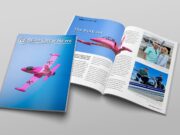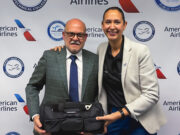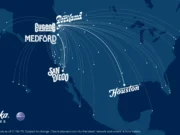
Building experience towards an airline, corporate, or private pilot job takes a lot of work. It takes work to complete your training, to search for open positions, and to work long hours each day to make your dreams a reality.
One of the biggest questions people often have is, what is it worth achieving your lifelong career dreams. Is flying professionally worth taking out loans or selling your house? Is it worth taking an entry-level flying job that might stress you out or put you in danger? Is it worth missing time with family and friends to achieve a higher level of success?
Answering these questions often takes a lot of thought and decision making. Getting into flying isn’t cheap or easy after all. Before jumping in headfirst, it is important to have enough assurance that your gamble will pay off. Really, at the root of all these questions is how much sacrifice is worth it to ensure a healthy long-term career.
I was in a local FBO last month talking with some Gulfstream pilots who were flying through for a few hours. Their advice for me at this stage of my career was to say yes to everything. If someone comes through in their single-pilot Citation and asks if you want to fly right seat, say yes. If you are offered a position flying bigger, heavier planes with more engines, take it. One of these pilot’s told me of his early flying days in clapped-out twins flying around the Caribbean.
The concept is simple enough. It gets more difficult when other factors enter the mix. Is a “better” position worth moving across the country (again) so soon? Is it worth taking a pay cut when you have a family to support? None of these answers are easy. However, every opportunity that presents itself is certainly worth some thought and attention. After all, there is no harm in, at least, pursuing the opportunity if only for practice building a résumé, going through interviews, and meeting with other pilots.
As corny as it may sound, this is a case where we, as pilots, can take some of our aeronautical decision making out of the cockpit. Just as when we’re flying, we can measure the risks and rewards of taking each new position; if the rewards outweigh the risks, or vice versa, there’s your answer. The fact of the matter is, starting and maintaining a career in aviation necessarily involves some level of sacrifice. Just as we must accept some risk in flight, we also must accept some sacrifice; it’s just a matter of how much sacrifice is too much sacrifice at each stage of our careers.
I might, therefore, modify the advice I got from those jet pilots – say yes to everything … most of the time. In some cases, flying with a risky operator or moving across the country might not be worth it. Consider, for example, whether you would accept such an offer if you already have a job that offers either good pay or good hours (or maybe – just maybe – both). What is the threshold where you give that up to move? In some cases, it may be worth it, such as to build PIC time in a turbine aircraft. In some cases, however, the benefits of staying put – whether in adjusted living expenses or career benefit – may outweigh the benefits of moving to another position.
Among the best resources to make decisions like this are other pilots. This is one of the main reasons why seeking connections early in your career is important. Not only will you have access to a wider breadth of opportunities, you will also have access to potentially decades of experience navigating the industry. Each connection, each mentor, brings a unique viewpoint and expertise that can get you to the right place at the right time. They can offer new insights, guide you to the right questions to ask, and challenge you to find the best solution for you and your situation.
Career changes can be difficult decisions to make. Ultimately however, the most important thing is to keep moving forward towards your goals. It does not matter if you’re flying at supersonic speeds or hobbling along in a little paramotor; as long as you are moving forward, you’re moving in the right direction. Things move quickly in aviation, so never forget to appreciate your journey, how far you have come and how much you have grown to arrive where you are.
















































